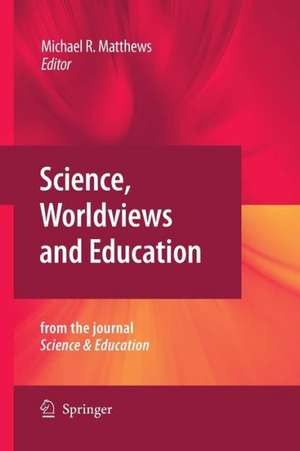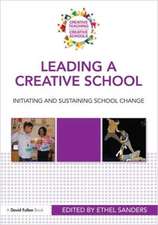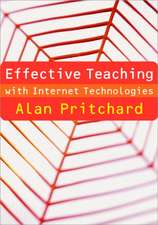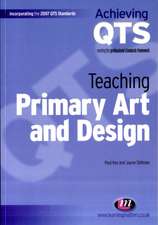Science, Worldviews and Education: Reprinted from the Journal Science & Education
Editat de Michael Matthewsen Limba Engleză Paperback – 22 oct 2014
| Toate formatele și edițiile | Preț | Express |
|---|---|---|
| Paperback (1) | 931.68 lei 6-8 săpt. | |
| SPRINGER NETHERLANDS – 22 oct 2014 | 931.68 lei 6-8 săpt. | |
| Hardback (1) | 937.56 lei 6-8 săpt. | |
| SPRINGER NETHERLANDS – 24 noi 2009 | 937.56 lei 6-8 săpt. |
Preț: 931.68 lei
Preț vechi: 1136.19 lei
-18% Nou
Puncte Express: 1398
Preț estimativ în valută:
178.36€ • 183.43$ • 147.97£
178.36€ • 183.43$ • 147.97£
Carte tipărită la comandă
Livrare economică 20 februarie-06 martie
Preluare comenzi: 021 569.72.76
Specificații
ISBN-13: 9789400790773
ISBN-10: 9400790775
Pagini: 360
Ilustrații: IX, 345 p.
Dimensiuni: 155 x 235 x 19 mm
Greutate: 0.51 kg
Ediția:2009
Editura: SPRINGER NETHERLANDS
Colecția Springer
Locul publicării:Dordrecht, Netherlands
ISBN-10: 9400790775
Pagini: 360
Ilustrații: IX, 345 p.
Dimensiuni: 155 x 235 x 19 mm
Greutate: 0.51 kg
Ediția:2009
Editura: SPRINGER NETHERLANDS
Colecția Springer
Locul publicării:Dordrecht, Netherlands
Public țintă
ResearchCuprins
Science, Worldviews and Education: An Introduction.- Science, Worldviews, and Education.- Teaching the Philosophical and Worldview Components of Science.- Worldviews and their relation to science.- Contemporary Science and Worldview-Making.- The Electromagnetic Conception of Nature at the Root of the Special and General Relativity Theories and its Revolutionary Meaning.- Imagining the World: The Significance of Religious Worldviews for Science Education.- Whose Science and Whose Religion? Reflections on the Relations between Scientific and Religious Worldviews.- Can Science Test Supernatural Worldviews?.- The Interplay of Scientific Activity, Worldviews and Value Outlooks.- Fall and Rise of Aristotelian Metaphysics in the Philosophy of Science.- Modern Science and Conservative Islam: An Uneasy Relationship.- Science and worldviews in the marxist tradition.- Science and Worldviews in the Classroom: Joseph Priestley and Photosynthesis.- Responses and Clarifications Regarding Science and Worldviews.
Textul de pe ultima copertă
Science, Worldviews and Education is an important and timely theme as many national and provincial education authorities are requiring that students learn about the Nature of Science (NOS), and that they learn about the broader historical and cultural contexts of science and its practice.
Such topics give rise to questions about science and worldviews: What is a worldview? Does science have a worldview? Are there specific ontological, epistemological and ethical prerequisites for the conduct of science? How can scientific worldviews be reconciled with seemingly discordant religious and cultural worldviews?
Questions about science and worldviews have had a long history. The Galilean revolution, the Darwinian revolution, and the Einsteinian revolution were all associated with profound cultural, religious and philosophical transformations and debates. The European Enlightenment was the first such major impact.
Globalisation and the science-based industrialization of many non-Western societies, with their own religious traditions and worldviews, make urgent the understanding of science and its inter-relation with worldviews, and for the development of informed and appropriate science education.
Contributors to this anthology include scientists, philosophers, theologians, and educators. They all share the conviction that science education has to promote a richer understanding of science and its relations with culture, religion, philosophy, and ultimately the worldview of students.
What is a scientific worldview? How does it differ from other worldviews? Is it possible to be educated in science yet lack a scientific worldview? Can science thrive in a society where such a worldview is lacking? These questions and more are discussed in depth by a distinguished group of scientists, philosophers, educators and theologians in this uniquely valuable volume.
Albert H. Teich, Director, Science & Policy Programs, American Association for the Advancement of Science, USA
This wide ranging collection of essays is an excellent way to enter the too often neglected territory of how science and science education relate to larger socio-cultural world views.
Peter Machamer, Department of History and Philosophy of Science, University of Pittsburgh, USA
Such topics give rise to questions about science and worldviews: What is a worldview? Does science have a worldview? Are there specific ontological, epistemological and ethical prerequisites for the conduct of science? How can scientific worldviews be reconciled with seemingly discordant religious and cultural worldviews?
Questions about science and worldviews have had a long history. The Galilean revolution, the Darwinian revolution, and the Einsteinian revolution were all associated with profound cultural, religious and philosophical transformations and debates. The European Enlightenment was the first such major impact.
Globalisation and the science-based industrialization of many non-Western societies, with their own religious traditions and worldviews, make urgent the understanding of science and its inter-relation with worldviews, and for the development of informed and appropriate science education.
Contributors to this anthology include scientists, philosophers, theologians, and educators. They all share the conviction that science education has to promote a richer understanding of science and its relations with culture, religion, philosophy, and ultimately the worldview of students.
What is a scientific worldview? How does it differ from other worldviews? Is it possible to be educated in science yet lack a scientific worldview? Can science thrive in a society where such a worldview is lacking? These questions and more are discussed in depth by a distinguished group of scientists, philosophers, educators and theologians in this uniquely valuable volume.
Albert H. Teich, Director, Science & Policy Programs, American Association for the Advancement of Science, USA
This wide ranging collection of essays is an excellent way to enter the too often neglected territory of how science and science education relate to larger socio-cultural world views.
Peter Machamer, Department of History and Philosophy of Science, University of Pittsburgh, USA
Caracteristici
First scientific volume addressing the question of the relationship of science and cultural worldviews Investigating how ontological, epistemological and ethical commitments are to be reconciled with both scientific findings and putative scientific worldviews Presenting contributions from various religious and scientific backgrounds









